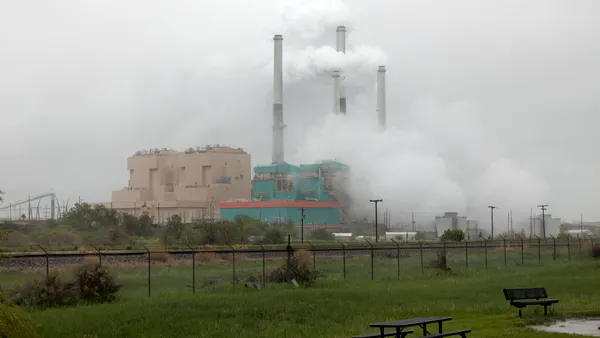Dive Brief:
- According to analysis by The Miami Herald, four coal companies which have flirted with Chapter 11 donated almost $1 million through their political action committees (PACs) to support candidates at the state and federal level.
- Alpha Natural Resources, Arch Coal and Peabody Energy collectively poured almost $700,000 into federal races and another belly-up company, Patriot Coal, gave about $150,000 to state-level candidates.
- As coal companies have faced declining generation share and a rash of plant closures, the industry has struggled to maintain a political presence. Republican Donald Trump has made revitalization of the sector a major platform of his candidacy.
Dive Insight:
Stakes are high this election season as two Presidential candidates with widely diverging views on energy policy are pushing hard in the last push before November 8. Coal companies have seen their industry collapse under the weight of environmental regulations and low gas prices, and are now backing the candidates who may revitalize their industry despite the almost constant stream of bankruptcy announcements this year.
In January, Arch Coal—the second largest coal producer in the nation—filed for bankruptcy. At the time, the Wall Street Journal reported more than a quarter of the United States' coal production was in Chapter 11. But Herald says the company's PAC has spent $343,000 to support federal candidates, including the National Republican Congressional Committee.
Arch and Alpha Coal have both exited bankruptcy since this summer.
While Democratic Presidential nominee Hillary Clinton's energy plan focuses on renewable energy, efficiency and gas, as well as revitalizing flailing coal communities, Trump's tack is a different approach: He wants to loosen restrictions on mining and drop environmental regulations which have held back the fuel. He has also noted the possibility of using clean coal technologies to give a shot to the industry.
Trump has also sworn to scrap President Obama's Clean Power Plan, which aims to curb greenhouse gas emissions 32% by 2030 from the power sector, in part by diminishing the role of coal producers and plants.
Natural gas generation played second fiddle to coal for years, but that balance is expected to flip this year as lower commodity prices and stricter environmental regulations give an edge to gas plants. Federal officials expect natural gas to generate about 34% of the nation's power this year, essentially swapping places with coal's 30%. Nuclear and renewable energy follow at 19% and 15%, respectively.













